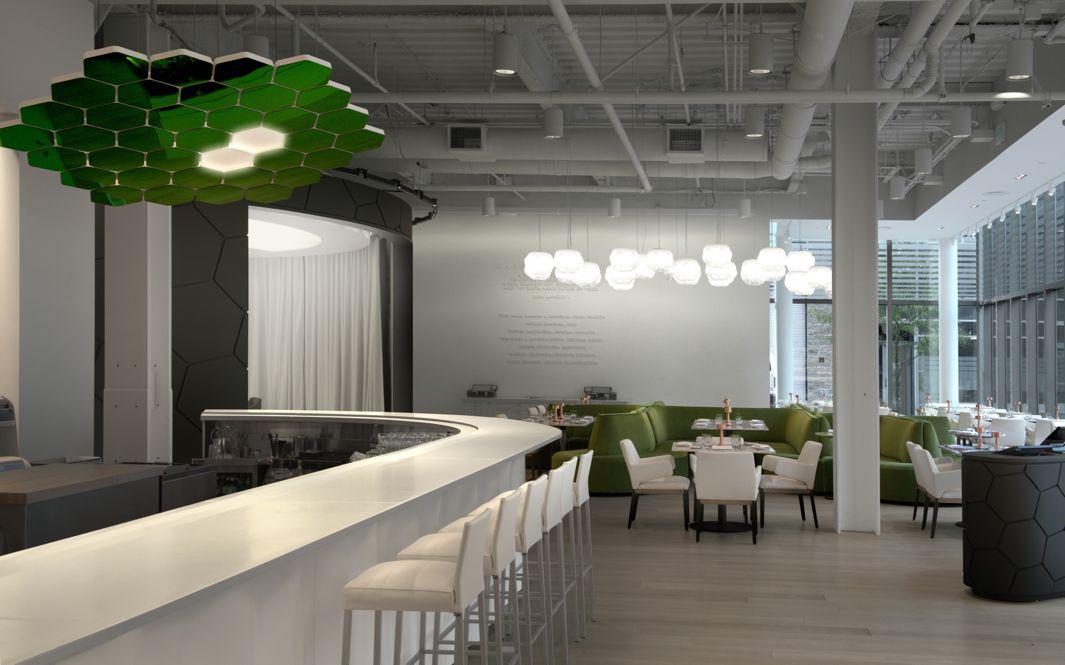The phenomenon of the science café has been around for a long time, an ad hoc gathering in a pub, bookstore, coffee house, or local library where strangers come to explore an interest in science.
But if an award-winning designer set out to specifically design a café inspired by science, what would it look like? The recently opened Café ArtScience in Cambridge, Massachusetts, is one answer to that question. A collaboration between American scientist and Harvard professor David Edwards and French designer Mathieu Lehanneur, it’s part of a U.S. offshoot of the Paris-based, science-inspired art and design center Le Laboratoire, founded in 2007.
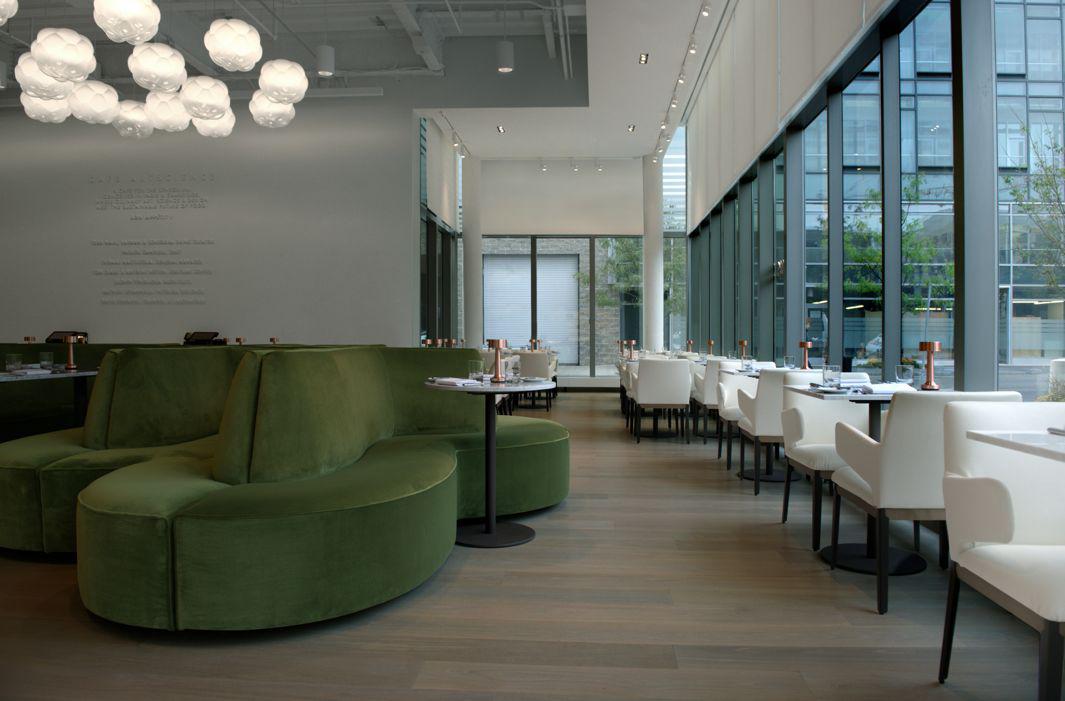
Courtesy of David Dziemian/Phase One Photography
The sophisticated-looking space includes a restaurant, bar, auditorium, concept shop, and art gallery, billing itself as “the missing link between scientific laboratory and literary café.”
Lehanneur, an award-winning French designer whose science-influenced work is featured in museums around the world, pointed out in a press release that “the greatest innovations and discoveries have rarely taken shape behind a desk,” citing Archimedes’ bath, Newton’s apple tree, and Steve Jobs’ garage. “Café ArtScience would have put these three great minds on the same sofa!”
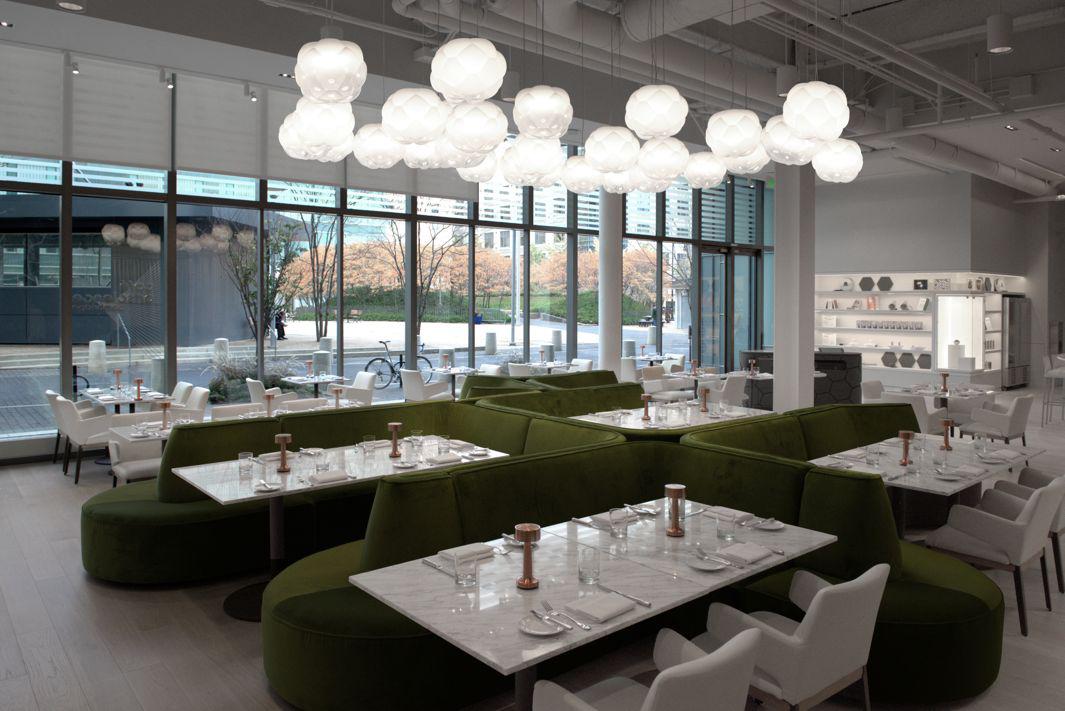
Courtesy of David Dziemian/Phase One Photography
There’s nothing clinical about the green velvet banquettes in the main dining room that scream posh restaurant more than experimental science café (though the wavy but otherwise pristine white cement bar has a whiff of the antiseptic). Lehanneur says that the design is an attempt to cater to the human brain’s need for both intellectual stimulation and pleasure.
A honeycomb motif—“geometrically symbolizing the collective intelligence of bees,” according to Lehanneur’s website—appears in green on a light fixture suspended over the bar and in black and white to enclose an auditorium designed for conferences, creative workshops, and private dinners. (Incidentally, a honeycomb pattern is also a prominent design motif in this science café library in Moldova.)
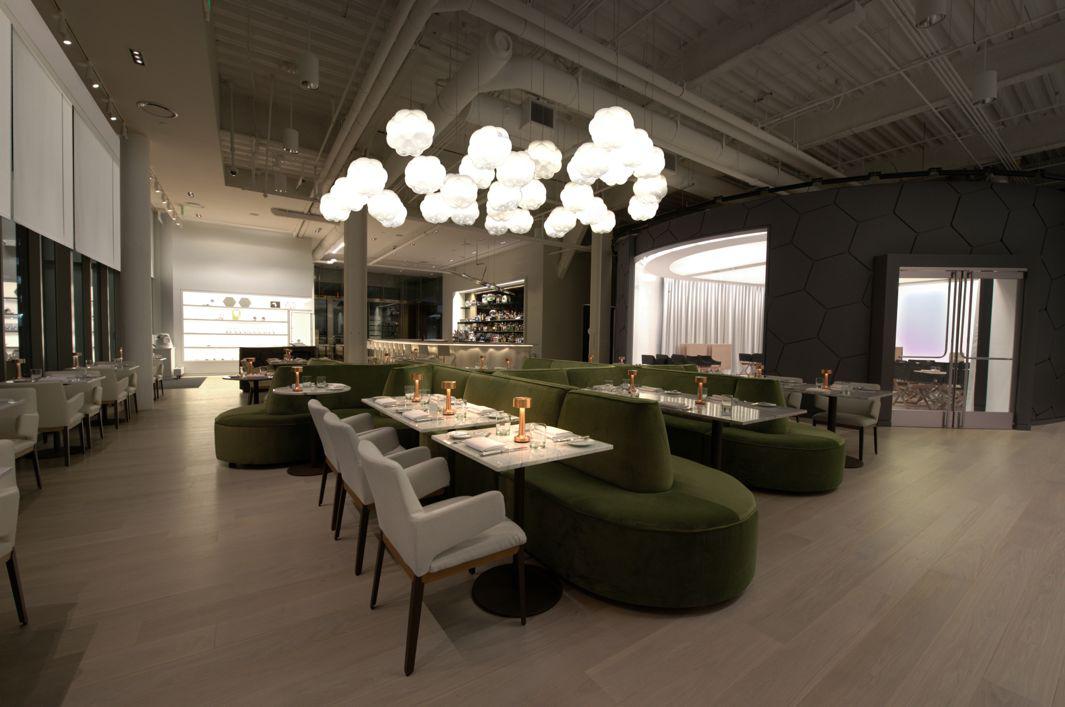
Courtesy of David Dziemian/Phase One Photography
The WikiBar serves “experimental cocktails,” and the restaurant’s upscale French-American cuisine is augmented by “food and sensorial design” from Edwards and Le Laboratoire that includes WikiPearls, food surrounded by edible packaging, and futuristic inhalable after-dinner mints.
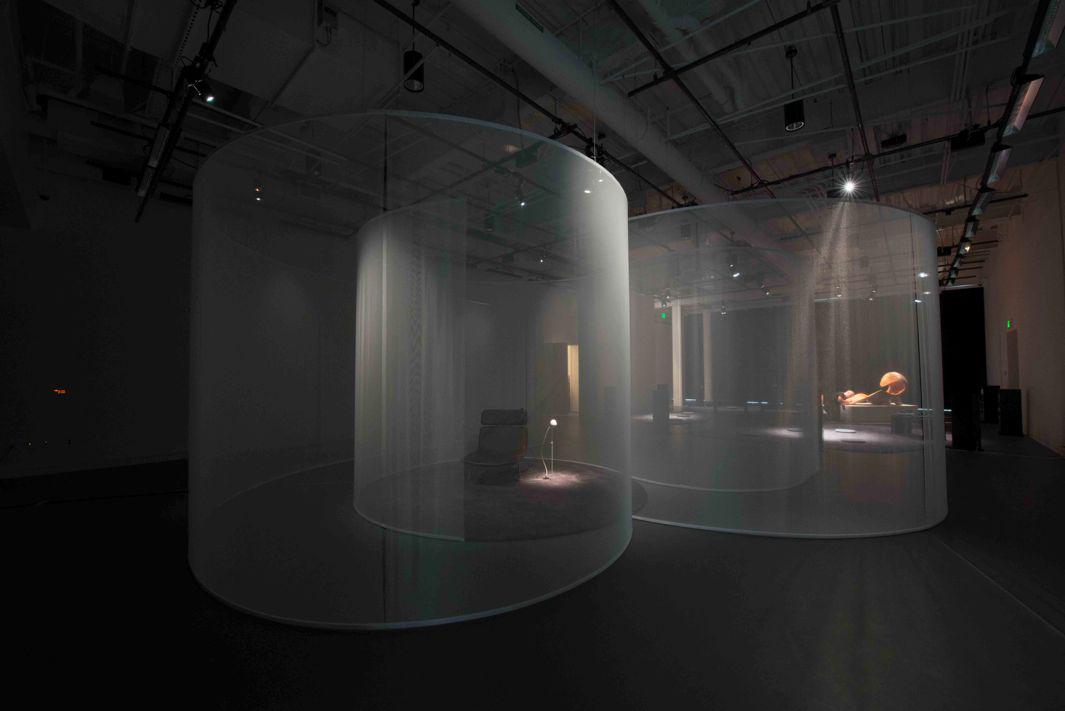
Courtesy of David Dziemian/Phase One Photography
